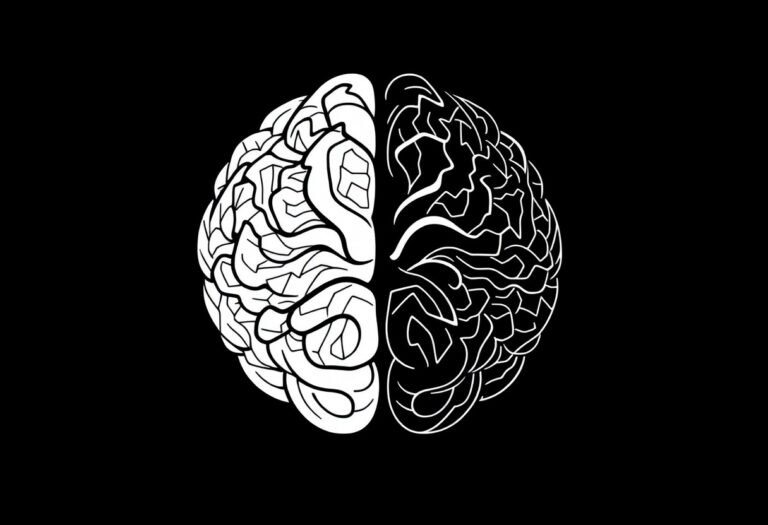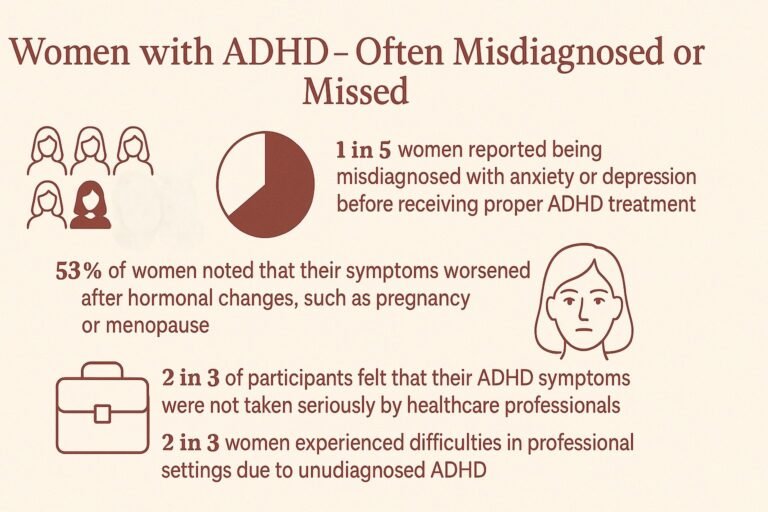Living with Schizophrenia: Voices from the UK
Voices from individuals living with schizophrenia in the UK reveal the complex realities of this mental health condition. As you navigate your experience, understanding the symptoms, treatment options, and personal stories can empower you and reduce stigma. Despite its rarity, schizophrenia can significantly impact your life. This post explores the many facets of living with this condition, emphasizing the importance of support, recovery, and personal resilience.
Key Takeaways:
- Schizophrenia is a complex mental health condition characterized by symptoms such as hallucinations, delusions, and disorganized thinking, impacting daily life.
- The onset of schizophrenia typically occurs in late adolescence or early adulthood, with varied progression that can differ significantly among individuals.
- Several factors contribute to the development of schizophrenia, including genetics, environmental influences such as trauma, and substance use.
- Treatment options in the UK include antipsychotic medications, cognitive behavioral therapy (CBT), and family involvement, all aimed at promoting recovery and managing symptoms.
- First-hand experiences from individuals living with schizophrenia provide valuable insights, helping to break down stigma and fostering a better understanding of the condition in society.
Understanding Schizophrenia
While schizophrenia is often misunderstood, it is a complex mental health condition that affects how you think, feel, and behave. Living with this disorder can be challenging, as many face stigma, misconceptions, and a lack of understanding from those around them. In the UK, approximately 1 in 100 individuals will experience schizophrenia, a condition that can be particularly disabling during its most severe episodes.
What Is Schizophrenia?
For many, schizophrenia represents a profound challenge to daily life, characterized by disruptions in cognition and perception. This mental health condition often manifests in various ways, deeply affecting your emotional and social well-being.
Key Symptoms and Early Warning Signs
At the onset of schizophrenia, you may notice early warning signs, such as withdrawal from social interactions, difficulty concentrating, or changes in sleeping patterns. These symptoms can escalate to more severe manifestations, like hallucinations or delusions, which can create a disconnection from reality.
Indeed, identifying symptoms early can significantly impact your journey. Common indicators include auditory hallucinations—hearing voices that others do not—or visual hallucinations. You may also experience disorganized thinking, making communication difficult. Early intervention is important to manage these symptoms effectively, as they can lead to more serious challenges if left unaddressed. Understanding these signs is the first step toward seeking help and improving your quality of life.
Myths and Misconceptions
There’s a significant amount of misinformation surrounding schizophrenia, which can lead to stigma and misunderstanding. Clarifying these myths is important, as they can create barriers for those living with the condition and affect your perception of mental health as a whole.
Common Myths About Schizophrenia
Any discussion of schizophrenia often brings up myths, such as the belief that individuals with this condition are violent or dangerous. Many people erroneously think schizophrenia is simply a split personality, contributing to widespread misconceptions about mental illness.
The Truth Behind the Myths
Before delving into the realities, it’s important to understand that the majority of those with schizophrenia are non-violent and pose no threat. This myth has been perpetuated by media portrayals and societal fears, leading to significant prejudice and alienation from the broader community.
Plus, understanding the truth about schizophrenia can foster empathy and support. Studies reveal that people with schizophrenia are more likely to be victims of violence than perpetrators. Rather than being defined by their condition, many individuals lead fulfilling lives with proper treatment and support. By focusing on accurate information and real experiences, you can help dismantle these harmful stereotypes and promote a more compassionate society.

Causes and Risk Factors
Unlike many other mental health conditions, schizophrenia has a complex interplay of factors contributing to its development. Understanding these causes and risk factors can help in identifying individuals who may be more susceptible to this disorder. Some key factors include:
- Genetics
- Trauma
- Environmental triggers
- Drug use
- Neurobiology
Any combination of these elements may increase your likelihood of experiencing schizophrenia.
Genetics and Family History
For individuals with a family history of schizophrenia, the risk of developing the condition can be significantly increased. Studies indicate that if you have a first-degree relative diagnosed with schizophrenia, your risk is about 10% compared to the 1% risk in the general population. Understanding your family history is an imperative step in assessing your potential vulnerabilities.
Environmental Influences and Triggers
Below, environmental factors can significantly influence the onset of schizophrenia. Several situational factors, such as moving to a new city, experiencing significant trauma, or facing chronic stress, can act as triggers for those predisposed to the condition. Additionally, substance abuse, particularly with cannabis, has been linked to an increased risk of developing schizophrenia, especially when used during adolescence or early adulthood.
In addition, specific experiences such as childhood trauma, social isolation, and exposure to stressful life events can also heighten your risk. It is imperative to be aware of these factors as they may contribute to the development of symptoms or exacerbate an existing diagnosis. Engaging in support systems and healthy coping strategies can mitigate some of these risks, allowing you to lead a balanced life.
Diagnosis and Treatment
Many individuals with schizophrenia in the UK face a lengthy journey toward receiving a proper diagnosis. Early detection is vital since it allows for timely intervention, which can significantly improve long-term outcomes. However, the stigma surrounding mental health can sometimes lead to delays, leaving patients feeling isolated and misunderstood.
Getting a Diagnosis in the UK
After experiencing symptoms, you may seek help from your GP, who will conduct an initial assessment. It’s important to be open about your experiences, as this information forms the basis of your diagnosis. Mental health professionals may use specific criteria outlined in the DSM-5 or ICD-10 to determine whether you have schizophrenia.
Treatment Options Available
On receiving a diagnosis, you will be introduced to various treatment options tailored to your needs. Antipsychotic medications are often prescribed to manage symptoms, alongside Cognitive Behavioral Therapy (CBT) to help you cope with challenges. Family therapy may also be recommended to support your loved ones in understanding your condition.
This treatment approach aims not only to alleviate symptoms but also to promote recovery. Engaging in community support groups can be transformative, allowing you to connect with others who share similar experiences. It’s important to stay in regular contact with your healthcare team, as they can adjust your treatment plan based on your progress and any side effects you may experience. Ensuring that you feel supported and understood is paramount in your path towards living well with schizophrenia.
Living with Schizophrenia
Despite the challenges of living with schizophrenia, many individuals find ways to manage their symptoms and lead fulfilling lives. In the UK, the experience is often misunderstood, leading to societal stigma. While the condition affects approximately 1 in 100 people, it can be profoundly disabling, impacting daily activities and relationships. With the right support and treatment, you can learn to navigate the complexities and develop a sense of normalcy in your life.
Coping Strategies and Support
Before commenceing on your journey with schizophrenia, it’s important to explore effective coping strategies and sources of support. Engaging in therapy, such as Cognitive Behavioral Therapy (CBT), can empower you to challenge negative thoughts and manage stress. Additionally, building a strong support network with family, friends, and peer groups fosters an environment where you are understood and heard.
Recovery and Resilience
Among individuals living with schizophrenia, many discover paths to recovery that emphasize resilience and personal growth. By focusing on Holistic methods—which may include medications like antipsychotics, therapy, and lifestyle changes—you can enhance your overall well-being. Support systems play a pivotal role, offering guidance and understanding throughout the recovery journey. Embracing recovery is about finding strength in vulnerability and nurturing your ability to adapt and thrive despite challenges.
Schizophrenia is not a destination but a journey marked by ups and downs. Utilizing effective coping mechanisms and establishing a supportive network can help you build resilience and achieve meaningful recovery. Engage actively with your treatment team, stay informed about your condition, and do not hesitate to seek support when needed. Each step you take towards understanding and managing your illness can lead to improved quality of life and personal achievement, highlighting the possibility of a hopeful future.
Real Experiences
Now, living with schizophrenia in the UK can often feel isolating, but hearing the stories of those who share this journey can provide hope and understanding. Many individuals describe their experiences with vivid voices, intense emotions, and the struggle to navigate everyday life. By sharing these narratives, we can break down stigma and foster empathy for those affected.
First-Hand Accounts from Individuals
With the unique perspective of each person, first-hand accounts reveal the varied experiences of living with schizophrenia. Some describe moments of profound creativity, while others face challenges with employment and relationships. Understanding these personal stories highlights the need for compassion and support in your community.
Insights from Caregivers and Families
From the perspective of caregivers and family members, the experience of supporting someone with schizophrenia can be equally challenging. Many express feelings of helplessness when trying to assist their loved ones through emotional turmoil. They emphasize the importance of open communication and education about the illness, which can foster a more supportive and empathetic environment for recovery.
Another significant aspect that families mention is the impact of education on their approach to care. By understanding the condition, they can better navigate the complexities of treatment and support, which ultimately contributes to a more stable home environment. Family support can be a powerful tool in managing schizophrenia, as it nurtures resilience and can significantly enhance the overall quality of life for both you and your loved one.
Conclusion
Upon reflecting on living with schizophrenia in the UK, it’s clear that understanding this complex condition is vital for both those affected and society as a whole. You have the power to break down stigma and foster compassion by sharing knowledge about its symptoms, causes, and treatment options. Engaging with personal stories from individuals living with schizophrenia can illuminate the realities of their experiences and highlight the support available, helping you appreciate the journey toward recovery and resilience.
FAQ
Q: What are the common symptoms of schizophrenia?
A: Common symptoms of schizophrenia include hallucinations (seeing or hearing things that aren’t there), delusions (holding onto false beliefs), and disorganized thinking, which can affect the ability to communicate effectively. Other symptoms may involve changes in emotions and behavior, leading to difficulties in social interactions and daily activities.
Q: How is schizophrenia diagnosed in the UK?
A: In the UK, schizophrenia is diagnosed by mental health professionals through a comprehensive assessment, which involves discussing symptoms, medical history, and any family history of mental health issues. Physical examinations and psychological evaluations are also performed to rule out other conditions that might exhibit similar symptoms.
Q: What treatment options are available for schizophrenia in the UK?
A: Treatment options for schizophrenia in the UK typically include antipsychotic medications, which help manage symptoms, along with psychotherapy approaches like cognitive-behavioral therapy (CBT) and family therapy for support. The NHS provides various resources to facilitate recovery, including community support services and rehabilitation programs.
Q: How can individuals live well with schizophrenia?
A: Living well with schizophrenia involves a combination of effective treatment, social support, and healthy coping strategies. Engaging in community support groups, maintaining a healthy lifestyle, and developing strong relationships with family, friends, and healthcare providers can significantly enhance quality of life for those affected by the disorder.
Q: What are some personal experiences shared by people living with schizophrenia in the UK?
A: Individuals living with schizophrenia in the UK have shared a variety of experiences that highlight both struggles and triumphs. Many emphasize the importance of understanding and support from loved ones, as well as the impact of therapy and medication in managing their symptoms. These real voices stress the need for reducing stigma and fostering open conversations about mental health.







